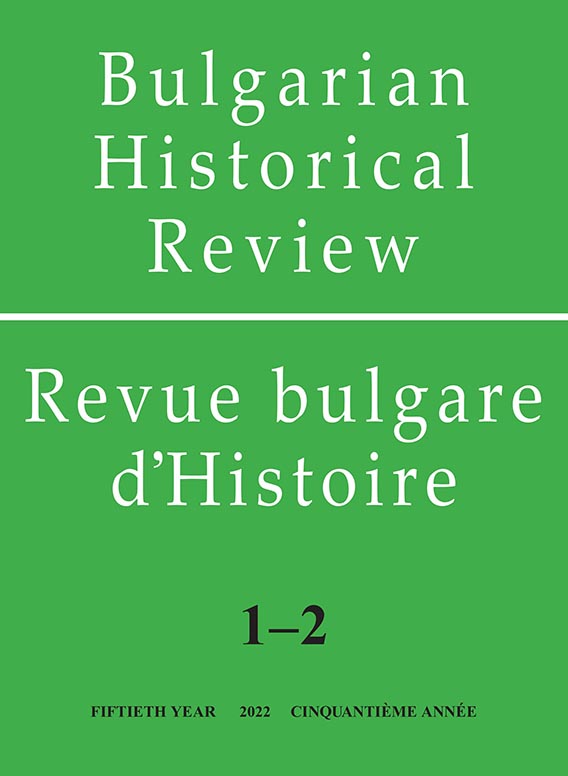Documents from the Sectoral State Archive of the Security Service of Ukraine on the Activities of the Personnel of the International Committee of the Red Cross during the 1956 Hungarian Revolution
Documents from the Sectoral State Archive of the Security Service of Ukraine on the Activities of the Personnel of the International Committee of the Red Cross during the 1956 Hungarian Revolution
Author(s): Natália VáradiSubject(s): History, General Reference Works, Political history, Social history, Recent History (1900 till today), Special Historiographies:, Post-War period (1950 - 1989), History of Communism, Cold-War History, Source Material
Published by: Институт за исторически изследвания - Българска академия на науките
Keywords: Transcarpathian archival documents; Hungarian revolution of 1956; deportation; interrogation; Government of Janos Kadar; The International Committee of the Red Cross; ICRC; Red Cross; Soviet Union;
Summary/Abstract: The main purpose of the study is to show the KGB documents concerning the personnel of the International Committee of the Red Cross, which are held in the Sectoral State Archive of the Security Service of Ukraine in Transcarpathia, Uzhgorod and give evidence about the deportations to the Soviet Union during the 1956 Hungarian Revolution. To write my study I used the following method: analysing archival documents, study professional literature. Results: Nowadays, more and more archival sources prove that Transcarpathia had an important role during the days of the Hungarian revolution in 1956, and also in the period after it. The representatives of the Soviet political leadership, that led the crushing of the revolution, settled at Uzhgorod. The KGB leaders, and high-ranking officers delegated from Moscow to Transcarpathia constantly informed the Soviet Union Communist Party’s Central Committee and Secretariat. Also, from Uzhgorod they organized the deportations of the Hungarian revolutionists to the Soviet Union. Three members of the ICRC were among the deported ones, who were taken to the prison to Uzhgorod. The ICRC had sent a telegram to Dmitri Shepilov, the Soviet foreign minister concerning the Hungarian peoples’ deportation to the Soviet Union, in early November 1956. It received a very short answer from Andrei Gromyko, then deputy foreign minister, suggesting the organization instead of the Soviet authorities should contact the Hungarian government. At the end of the year, Janos Kadar announced that all deportees had been repatriated, and according to the KGB documents most of them were really taken back to Hungary, among them the co-workers of the ICRC.
Journal: Bulgarian Historical Review / Revue Bulgare d'Histoire
- Issue Year: 2022
- Issue No: 1-2
- Page Range: 148-165
- Page Count: 18
- Language: English
- Content File-PDF

